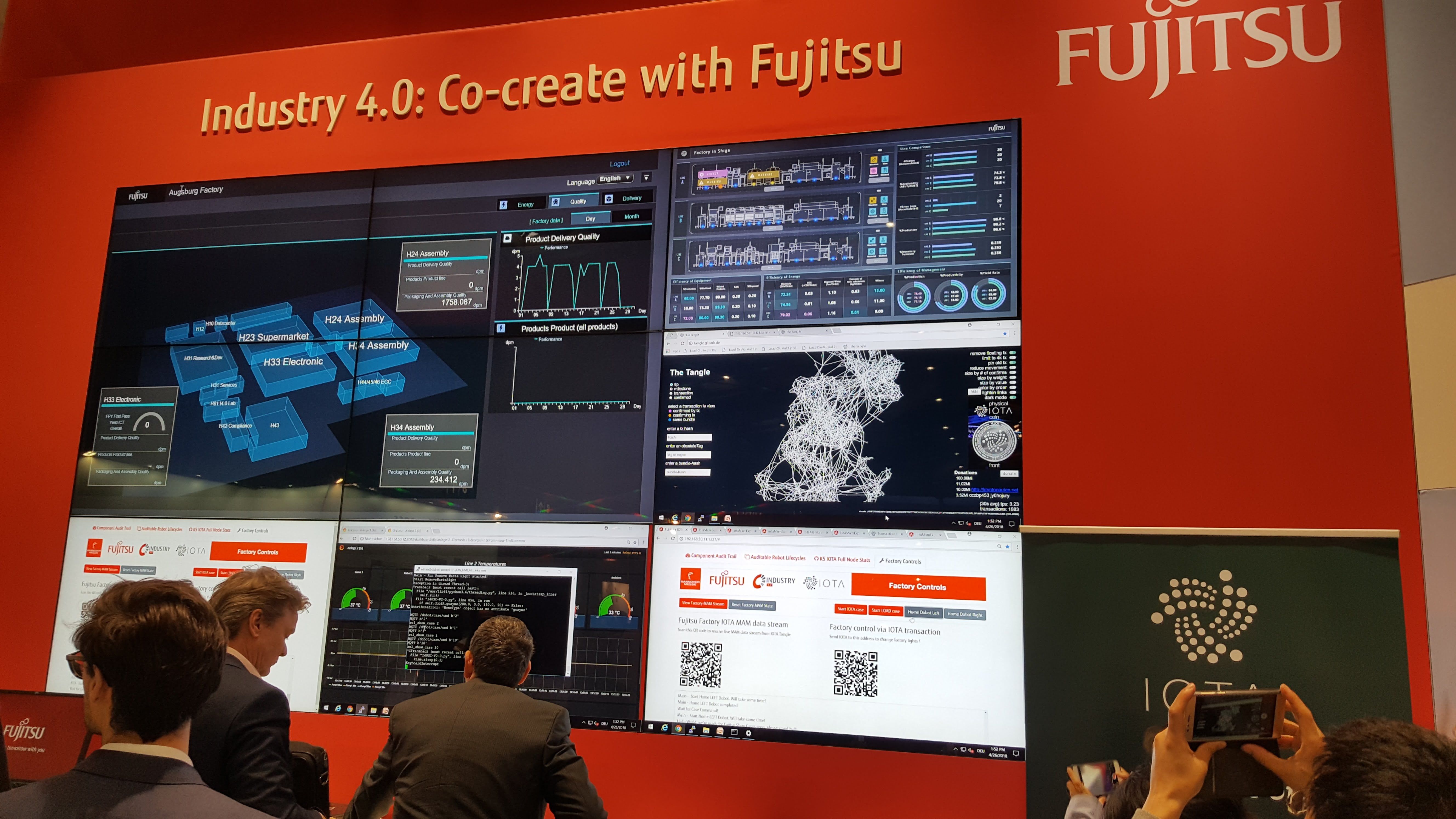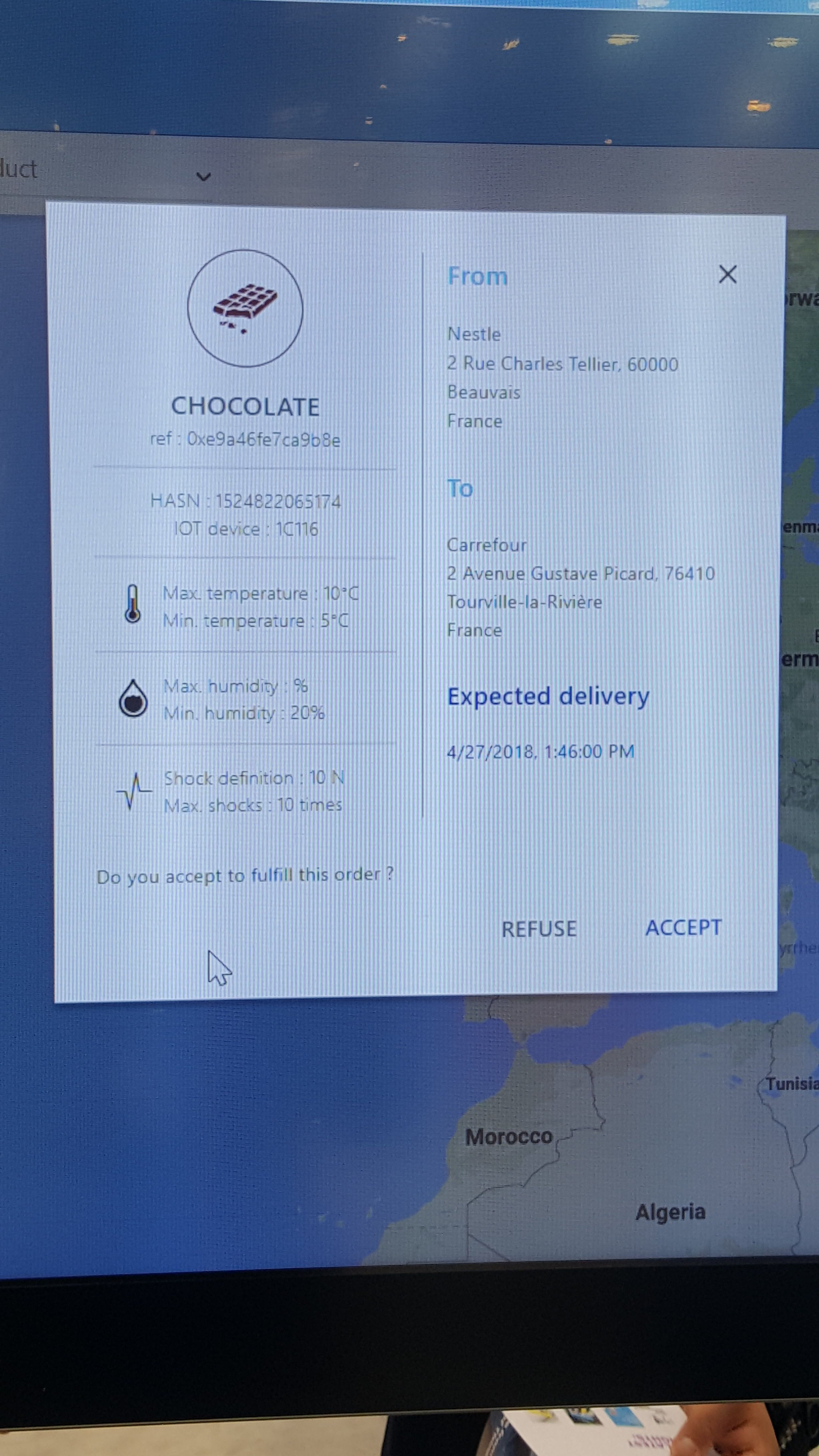Cryptocurrency applications hiding in plain sight at gigantic industrial trade fair
Hannover Messe is one of the world’s largest trade shows for industrial automation. In late April more than 200,000 attendees made their way to Hannover, Germany to shuffle through 23 exhibition halls. They were there to see the latest in sensors, databases, 3D printers, robots and cobots, virtual reality, digital twin design models, and hundreds more innovations for manufacturing. And if any of those 200,000 attendees found the right booths and asked enough questions, they would discover cryptocurrency is being closely examined by a few forward-thinking vendors.
The cryptocurrency mentioned the most in Hannover was IOTA. It is designed for machine-to-machine communication — IOTA is an acronym for Internet of Things Application. Using smart contract technology and a clever reinvention of the blockchain’s distributed autonomous ledger called the Tangle, IOTA is designed to improve a wide variety of existing industrial workflows and be the catalyst for new industrial business models.
The few companies in Hannover talking about IOTA made it clear they were testing the software for possible future use. No money has exchanged hands; no money has changed hands; there are no official partnerships with the IOTA Foundation. Fujitsu devoted a monitor wall and a miniature assembly line to an IOTA demonstration, but company representatives were quick to say it was only a “use case demonstration” and not about any specific present or future product.

Computer manufacturer Fujitsu demonstrated a possible use case for cryptographic distributed ledger technology at Hannover Messe, showing how the cryptocurrency IOTA could create a hands-off system to tag and track a product from assembly to deployment.
Why was Fujitsu interested in IOTA? Independent open source developer Sascha Radatz, who has contributed to the IOTA project, was on hand to explain. “Everyone is attracted to fee-less transactions,” he says. Unlike other cryptocurrencies which might be used to tracks products from factory to consumer, IOTA uses a zero-fee transaction method. A modest fee to a miner or master node might be acceptable to coin holders with the occasional transaction, but industry will need to conduct millions of microtransactions.
Radatz explains the “fee” in IOTA is the transaction itself. The proof of work cycle requires a new transaction to validate two previous transactions. IOTA proponents say this method also makes IOTA scalable to handle millions of transactions per second, and that the more IOTA is used the faster it gets.
A license to print in 3D
Fujitsu was not the only company in Hannover willing to discuss the use of blockchain technology. Design engineering consulting firm PROSTEP was showing off a blockchain application that connects product lifecycle management software with 3D printing to create a “licence to print,” according to PROSTEP VP of strategic and business development Dr. Martin Holland. A smart contract would be generated with each design model sent to a 3D printer, specifying rights and limitations, and tracking each time the model is printed. If the design file fell into the wrong hands, the contract would be able to prevent printing or to notify the owner of the design about unauthorized use.
Holland says development started with the open source Ethereum blockchain, but has since moved to a private version based on Ethereum. IOTA and HyperLedger are also being tested. Holland has been part of the design automation industry since the 1990’s, and is emphatic about the possibilities for blockchain technology in manufacturing: “Distributed trust will change the world.” PROSTEP hopes to convince the 3D printing industry to work with it to create an industry standard. Holland says so far HP, 3D MicroPrint, and EOS — the 3D printing vendor, not the cryptocoin — have expressed interest. The German Federal Ministry for Economic Affairs and Energy is a sponsoring partner.

Product Lifecycle Management software consultant PROSTEP demonstrated SAMPL (Secure Additive Manufacturing PLatform) at Hannover Messe. PROSTEP is working with the German government and leading manufacturers to make SAMPL an industry standard for granting use rights to design models for 3D printing. (Image courtesy PROSTEP)
Immutable logistics
Schneider Electric sounds like a company name suitable for a home wiring business, but SE is a leading software vendor in energy management, industrial processes, and process plant design — including design of giant oil and gas facilities that cost billions each. SE’s Jason Dudek worked a small booth within the much larger Microsoft exhibition at Hannover Messe, showing off a blockchain test case involving shipping perishable goods from factory to store. Each product or shipment was assigned a unique ePassport using blockchain tech. Every handoff, every truck used in shipment, and the acceptance of the delivery are all written to the ePassport.
Dudek says SE has existing software for tracking shipments, but adding blockchain tech to the process creates an immutable record open to all participants in the supply and delivery chain. He gave an example of delicate chocolates being shipped across Europe. The ePassport could record the specific truck, with links to data showing it was capable of keeping the chocolate cool during shipment.
Dudek did not specify what blockchain software the company is using; SE was in the Microsoft exhibition because this project will extend software already running on Microsoft Azure cloud services.

Schneider Electric and Microsoft demonstrated a blockchain-based logistics control network test application which could track complex and fragile food products.
Randall S. Newton is a business consultant and technology journalist with one foot in design and manufacturing technologies and the other foot in cryptocurrency. Follow him on Twitter: @RSNatWork